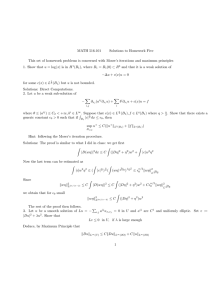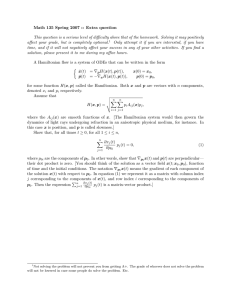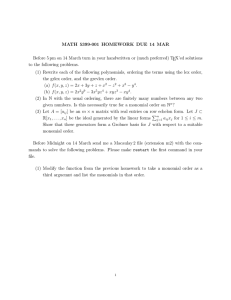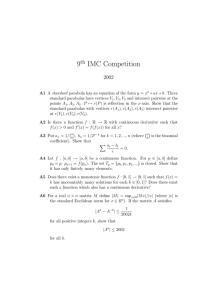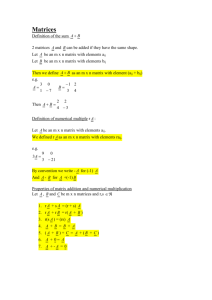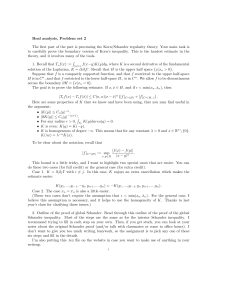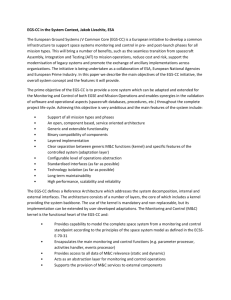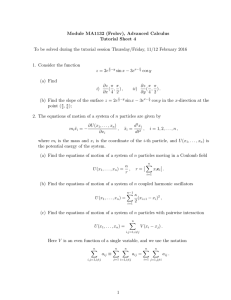Math 222 - Selected Homework Solutions for Assignment 7 v ;:::v
advertisement
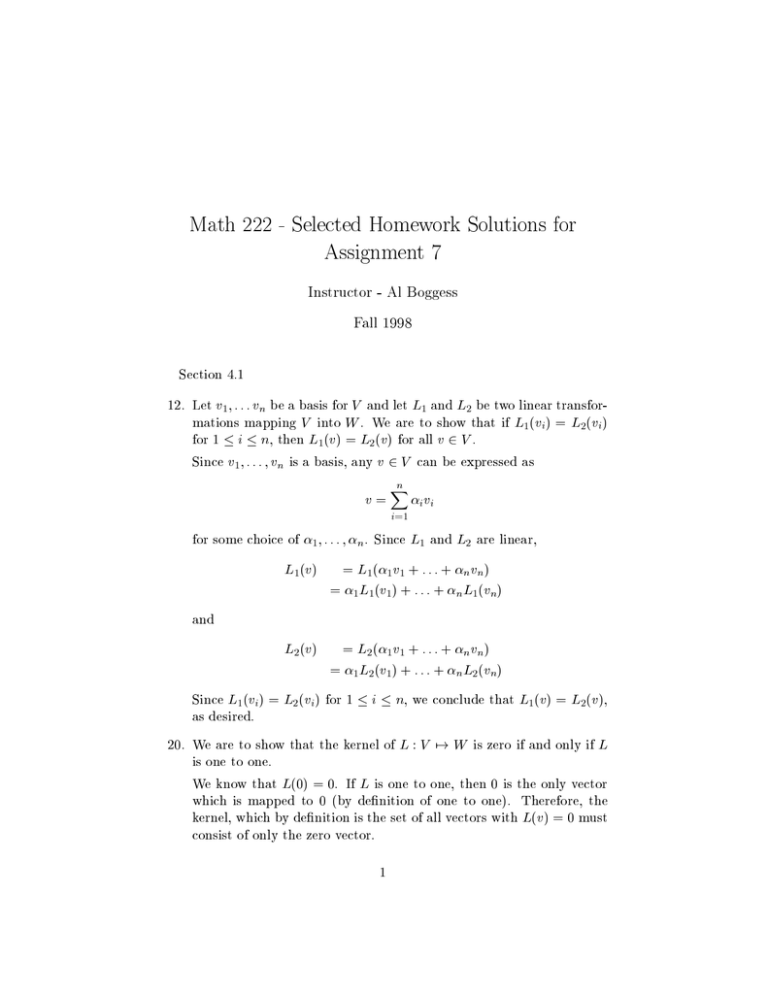
Math 222 - Selected Homework Solutions for Assignment 7 Instructor - Al Boggess Fall 1998 Section 4.1 12. Let v1 ; : : : vn be a basis for V and let L1 and L2 be two linear transformations mapping V into W . We are to show that if L1 (vi ) = L2 (vi ) for 1 i n, then L1 (v) = L2 (v) for all v 2 V . Since v1 ; : : : ; vn is a basis, any v 2 V can be expressed as v= Xn v i=1 i i for some choice of 1 ; : : : ; n . Since L1 and L2 are linear, L1 (v) = L1 (1 v1 + : : : + n vn ) = 1 L1 (v1 ) + : : : + n L1 (vn ) L2 (v) = L2 (1 v1 + : : : + n vn ) = 1 L2 (v1 ) + : : : + n L2 (vn ) and Since L1 (vi ) = L2 (vi ) for 1 i n, we conclude that L1 (v) = L2 (v), as desired. 20. We are to show that the kernel of L : V 7! W is zero if and only if L is one to one. We know that L(0) = 0. If L is one to one, then 0 is the only vector which is mapped to 0 (by denition of one to one). Therefore, the kernel, which by denition is the set of all vectors with L(v) = 0 must consist of only the zero vector. 1 Conversely, suppose the kernel of L = f0g. We must show that L is one to one. Suppose L(v1 ) = L(v2 ). We must show that v1 = v2 or equivalently, v1 , v2 = 0. Now if L(v1 ) = L(v2 ), then L(v1 , v2 ) = L(v1 ) , L(v2 ) since L textrmislinear =0 and so v1 , v2 belongs to the kernel of L. If the kernel is f0g, then v1 , v2 = 0 or v1 = v2 as desired. Section 4.2 14. Let A be the matrix that represents the linear transformation A with respect to the standard basis. If L(x) = 0 for some x 6= 0, then we are to show that A is singular. Now, L(x) = A(x), and so if Ax = 0 with x 6= 0, then the matrix is singular by Theorem 1.4.3. 17. Let E = e1 ; : : : en be a basis for V ; let F = f1 ; : : : ; fm be a basis for W ; and let G = g1 ; : : : ; gl be a basis for Z . Suppose A is the matrix representing L1 : V 7! W with respect to bases E and F ; suppose B is the matrix representing L2 : W 7! Z with respect to bases F and G. We are to compute the matrix for L2 L1 : V 7! Z . Since A is the matrix representing L1 : V 7! W with respect to bases E and F , we have m X L1 (ej ) = aij fi i=1 Since B is the matrix representing L2 : W 7! Z with respect to bases F and G, we have l X L2 (fi) = bkigk k=1 Combining both of these equations, we have P L2 (L1 (ej )) = L2 ( mi=1 aij fi ) P = mi=1 aij L2 (fi ) since L2 is linear P P = mi=1 aij lk=1 bki gk P P = lk=1 ( mi=1 bki aij ) gk P Let C be the matrix with ckj = mi=1 bki aij ; then L2 (L1 (ej )) = 2 Xl c k=1 kj gk and so ckj is the matrix that represents L2 L1 with respect to E and G. Note from the formula of ckj that this is just the k; j th entry of BA, as desired. 3
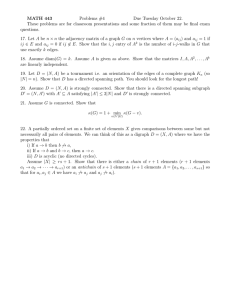
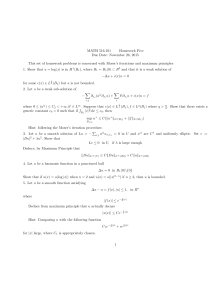
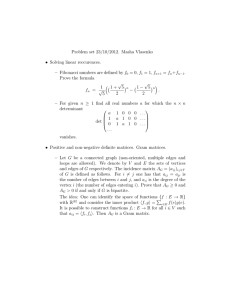
![1. Let R = C[x].](http://s2.studylib.net/store/data/010491179_1-9a9c70e395518f466f652079f02ae14a-300x300.png)
